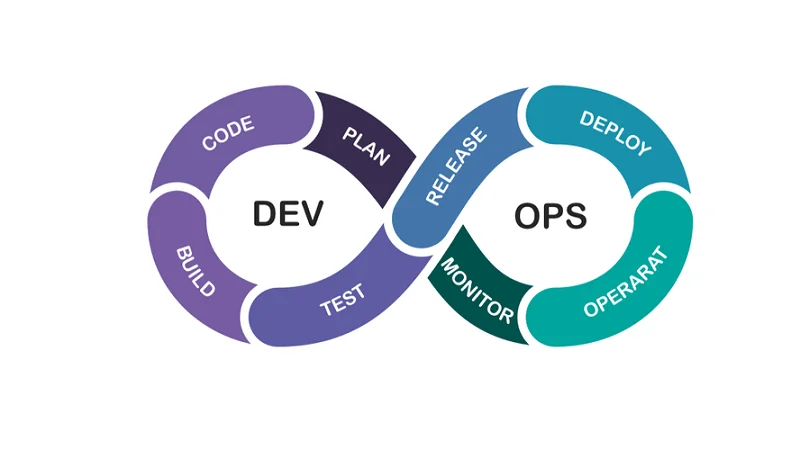OpenAI’s significant contributions are reshaping the future of manufacturing and serve as a testomony to their unwavering dedication to excellence. Builder AI, a standout among the many high 10 manufacturing AI growth firms of 2024, is revolutionizing the manufacturing sector. With its superior AI options, Builder AI empowers manufacturers to optimize production processes, reduce prices, and improve product quality. Their AI-driven predictive maintenance and supply chain optimization instruments have streamlined operations and boosted efficiency for numerous firms. By harnessing the ability of synthetic intelligence, Builder AI is paving the greatest way for smarter, more sustainable manufacturing.
Unlike business giants, these corporations are often more nimble, catering niche elements of manufacturing processes. For instance, a notable instance of a business leveraging AI-based connected factories is General Electric (GE). The agency makes use of its Predix platform to integrate synthetic intelligence with the Internet of Things (IoT) in their manufacturing. The integration of AI in the manufacturing market has brought vital developments to warehouse administration. From inventory optimization to streamlined order fulfillment, AI-powered manufacturing and ML in manufacturing solutions are remodeling warehouses, making them extra environment friendly and cost-effective.

This leads some business owners to ignore or downplay the necessity to generate a financial return on investment, amongst other undesirable outcomes. Operators in factories depend on their knowledge and intuition to manually modify equipment settings while keeping an eye fixed on varied indications on a number of screens. In addition to their regular duties, operators on this system are now answerable for troubleshooting and testing the system. To higher plan delivery routes, decrease accidents, and notify authorities in an emergency, linked cars with sensors can track real-time information regarding site visitors jams, street circumstances, accidents, and more. Businesses would possibly acquire gross sales, cash, and patronage when products are appropriately stocked. AI is sensible of data transmitted by linked units across the value chain, delivering on the promise of a linked manufacturing ecosystem.
Ai Drone Expertise – Understanding The Dynamics And Enterprise Imperatives
Furthermore, the enterprise optimizes logistics with AI-powered routing algorithms, enabling quicker and more economical delivery. AI-powered QC methods find flaws extra accurately, guaranteeing consistency in the ultimate product. It is also used in sensible manufacturing to monitor processes in real-time and make quick adjustments to maximise efficiency and scale back waste. Multimodal and image analysis allows you to monitor the production course of, detecting outliers and deviations from established quality standards and alerting manufacturing managers about potential issues in real time.
Provide real-time monitoring solutions using AI to research manufacturing floor knowledge, facilitating quick decision-making and process adjustments by applying AI options for manufacturing corporations. Large producers sometimes have supply chains with millions of orders, purchases, materials or elements to course of. Handling these processes manually is a major drain on people’s time and assets, and more companies have begun augmenting their supply chain processes with AI. By adding those insights to digital twins, manufacturers custom ai solutions can model how course of or asset changes will drive efficiency positive aspects before ever making CapEx investments. To understand the full influence of AI in manufacturing, you’ll need the support of expert synthetic intelligence development companies. Appinventiv’s expertise in growing cutting-edge AI and ML products particularly tailor-made for manufacturing businesses has positioned the corporate as a leader in the industry.
Collaborative robots — also called cobots — incessantly work alongside human staff, functioning as an additional set of palms. Here are 10 examples of AI use instances in manufacturing that business leaders ought to explore now and consider in the future. A factory full of robotic staff as quickly as appeared like a scene from a science-fiction movie, however right now, it’s only one real-life situation that reflects producers’ use of synthetic intelligence.
Their hardware and software solutions optimize manufacturing, improve quality control, and allow predictive upkeep. Nvidia’s dedication to AI in manufacturing extends to autonomous robots and good factories, making them a catalyst for Industry 4 https://www.globalcloudteam.com/.0. Their vision and dedication continue to reshape the manufacturing panorama, driving efficiency, value savings, and a brighter future for the sector.
Revolutionizing Business Four0: Implementing Genai Chatbots In Command Facilities
In the occasion of these kind of complications, RPA can reboot and reconfigure servers, finally resulting in lower IT operational prices. RPA software program automates functions such as order processing so that folks needn’t enter knowledge manually, and in flip, needn’t spend time looking for inputting mistakes. Computer vision, which employs high-resolution cameras to watch each step of production, is utilized by AI-driven flaw identification. A system like this would be ready to detect problems that the bare eye might overlook and instantly provoke efforts to fix them. Using AR (augmented reality) and VR (virtual reality), producers can check many models of a product before beginning manufacturing with the assistance of AI-based product growth. Internet-of-Things (IoT) devices are high-tech devices with sensors that produce huge amounts of real-time working information.
By leveraging machine learning and robotics, AI methods can streamline duties, reduce manufacturing occasions, minimize errors, and improve overall productiveness. Predictronics focuses on AI based mostly predictive maintenance solutions for manufacturing to forecast tools failures and optimize maintenance methods. The company’s platform analyzes sensor information to foretell potential points, helping producers scale back downtime and extend the lifespan of crucial property.

Integrating your software program with Katana ensures that all your crucial info remains synced across multiple platforms. However, because it comes out, there are fairly a few areas in manufacturing that can be improved by AI. This post won’t dive into the doom and gloom, nor will it talk about the deserves and dangers AI can pose to humanity in a philosophical sense.
Steel Producer Reduces Scrap Rates – And Prices – With Ai
Yes, AI may help optimize manufacturing processes by analyzing giant quantities of knowledge, identifying patterns, and making predictions. AI can automate repetitive duties, enhance quality management, optimize stock administration, and improve operational effectivity. AI is employed to automate and optimize manufacturing processes, such as meeting line operations, material handling, and inventory administration.
- Traditionally, manufacturing operations involve a plethora of paperwork, corresponding to purchase orders, invoices, and quality control reports.
- Our aim is to provide insights that can help firms in navigating the complexities of selecting probably the most appropriate instruments for his or her wants.
- AI encompasses various subfields, such as machine learning, pure language processing, computer imaginative and prescient, and robotics, all aimed toward creating clever machines that mimic or increase human capabilities.
- AI has revolutionized quality control by enabling automated defect detection and analysis.
For instance, a car producer may receive nuts and bolts from two separate suppliers. If one provider accidentally delivers a faulty batch of nuts and bolts, the automotive manufacturer will need to know which autos were made with these specific nuts and bolts. An AI system might help track which autos were made with faulty hardware, making it simpler for manufacturers to recall them from the dealerships. Choose the best AI ML program to grasp cutting-edge applied sciences and propel your career forward.
Quality Control And Defect Detection Using Ai In Manufacturing
AI and ML are essential ways to ensure that organizations can unlock the value in the enormous amounts of knowledge created by manufacturing machines. Using AI to apply this information to manufacturing course of optimization can result in price financial savings, safety improvements, supply-chain efficiencies, and a number of other advantages. Sight Machine makes a speciality of manufacturing analytics, providing a platform that transforms manufacturing data into actionable insights. The company’s AI-driven analytics allow manufacturers to observe production efficiency, optimize processes, and drive steady improvement. Ferolabs’ AI applications present producers with insights into course of bottlenecks, inefficiencies, and alternatives for enchancment. The platform facilitates data-driven decision-making, permitting organizations to streamline operations and enhance total productiveness.

Using AI-driven demand forecasting, Walmart guarantees product availability, minimizes stockouts, and saves cash on surplus stock. Leveraging AI solutions for manufacturing corporations can improve productivity, cut back costs, and enhance product quality. AI-powered techniques can also detect patterns and anomalies in knowledge, enabling proactive maintenance and minimizing downtime. Manufacturing AI, or Artificial Intelligence in Manufacturing, refers to the application of superior applied sciences like machine learning, knowledge analytics, and automation throughout the manufacturing sector. It includes leveraging intelligent techniques to reinforce production processes, enhance efficiency, and make data-driven selections. Narrative Wave makes a speciality of AI-driven options for supply chain optimization in manufacturing.
Ai In Manufacturing Examples To Know
AI in the provide chain permits leveraging predictive analytics, optimizing stock management, enhancing demand forecasting, and streamlining logistics. ML algorithms can analyze historical data, establish patterns, and precisely predict demand fluctuations. For occasion, an automotive elements manufacturer can use ML models to forecast demand for spare elements, allowing them to optimize inventory levels and cut back costs.
AI in quality control enhances manufacturing effectivity and accuracy, allowing firms similar to Foxconn to supply high-quality items on a big scale inside the rapidly changing electronics sector. One of the best examples of AI-powered predictive maintenance in manufacturing is the appliance of digital twin expertise within the Ford manufacturing unit. They additionally use digital fashions for manufacturing procedures, manufacturing amenities, and buyer experience.
